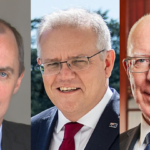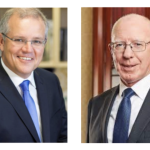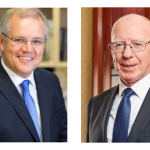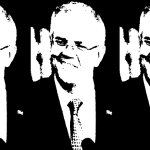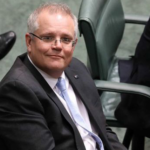The Office of the Governor General Is No Longer Tenable
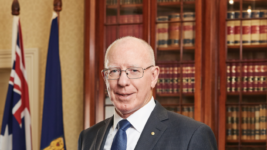
Whilst prime minister Anthony Albanese has downplayed the role of Scott Morrison-appointed Australian governor general David Hurley’s role in the multiple ministries saga, there are clear signs that the part played by “Her Majesty’s representative in the Commonwealth” was problematic.
As the recently released documents relating to the appointments reveal, Morrison was appointed as dual administrator of the finance portfolio on 30 March 2020, yet there is no mention of this in the Governor General’s Program, as is normally the case when a minister is sworn in.
But what is clear is that two days after the last PM commenced shadowing then finance minister Mathias Cormann without his knowledge, the GG “participated in a bike ride with members of the Canberra PCYC at Lake Burley Griffin”.
The official diarised notes of the governor general also deliberately detail his swearing in of the new PM on 23 May this year, along with Richard Marles to employment, Penny Wong as foreign affairs minister, Jim Chambers as treasurer and Katy Gallagher as finance minister.
The noting of seemingly insignificant events in the pages of the GG’s program, with the failure to record secret ministries withheld from the public, raises questions about the actions of Hurley himself but also trigger concerns about the tenability of the office of governor general.
Looking the other way
“It is not the responsibility of the governor general to advise the broader ministry or parliament (or public) of administrative changes of this nature,” reads a statement attributed to a governor general spokesperson.
“The governor general had no reason to believe that appointments would not be communicated,” it continues.
But while this claim might hold up when Morrison was made administrator of Health and Finance in March 2020, one could assume that the GG would have twigged that there had been no public announcement of those appointments prior to the further three being made in April-May 2021.
As the solicitor general Stephen Donaghue points out in his assessment of the situation, the GG “is bound to follow the prime minister’s advice”. But it remains uncertain as to whether Hurley followed an order from Morrison in breaking protocol and not divulging or diarising the appointments.
The 17 August statement from the GG spokesperson is at pains to shirk any responsibility he might have had. However, the fact that the ultimate holder of executive power in this nation is bound to unquestioningly follow the minister who appointed him into a vast conspiracy is problematic.
Bound by convention
Section 1 of the Australian Constitution provides that legislative power resides in federal parliament, which consists of the Queen, the Senate and the House of Representatives. Section 2 outlines that since the Queen is from a foreign land, the GG shall exercise her power here.
Much of the space the governor general operates within is governed by convention, which means they’re guided by traditions that are not detailed in the Constitution and nor in any legislation or code of conduct.
For example, the GG spokesperson explains in their statement that the type of appointments involved in the shadow ministries scandal, don’t rest with the executive, but rather the PM makes these recommendations to the GG in writing, which is a procedure bound by convention.
And while the governor general does attend numerous afternoon teas as part of their role, the incumbent also holds a number of reserve powers, which aren’t set out in the Constitution either but rather rest in the authority of the Queen and are exercised according to convention.
So, the scope of these powers is uncertain and up for debate.
The GG can exercise these powers to appoint a prime minister in the case of a hung parliament and to dismiss them if the lower house passes a no confidence motion on their ability to govern.
The last time a scandal so prominently involved the Queen’s representative, was when then GG Sir John Kerr sacked PM Gough Whitlam on 11 November 1975, following a top-heavy Coalition Senate refusing to pass a measure to fund parliament over a break unless an early election was called.
And the Morrison scandal has laid bare the issues underlying our democracy, which continues to operate as a constitutional monarchy, with the GG, as head of state, who is bound to follow the PM’s word, whilst wielding the power to sack them.
“Nothing will save the governor general”
The solicitor general’s assessment found that nothing illegal transpired when Morrison had the GG appoint him to secretly to administer five other portfolios, however the principle of responsible government implied in the Constitution had been breached via actions governed by convention.
Morrison has shown that the conventions operating for over a century cannot be depended upon to maintain our system of government. And further, Hurley has revealed that the office of the governor general can’t be depended upon to ward off a crisis that undermines our democracy.
The Albanese government has pledged to hold a referendum on this nation becoming a republic, and break those ultimate ties with UK royalty, if elected to a second term in office, as it wants to prioritise providing First Nations people with a voice to parliament.
But can the current government achieve this goal by incorporating First Peoples into a Constitution that has been found lacking and continues to be linked to the British Crown, when this voice will be providing advice to a parliament that will ultimately only be bound to follow it by convention.
Albanese has launched an inquiry into the scandal with former High Court Justice Virginia Bell appointed to carry it out and report back in November. It will investigate the practices and policies applying to “ministerial appointments and recommend any procedural or legislative changes”.
Yet, this crisis in Australian democracy is much greater than the protocols governing ministerial appoints, and it points to the rot at the very foundations of one of the largest multicultural nations in the world, grappling with invasion, and still bound to some far-off power.
The self-serving bending of conventions by the last leader of the country has revealed that this decay has set in within the spaces between the statutory governing laws and it signals the need for a far greater change than a few band-aid provisions in a piece of legislation.
Image: “File:David Hurley official photo.jpg” by Office of the Governor-General of Australia is licensed under CC BY 3.0.


